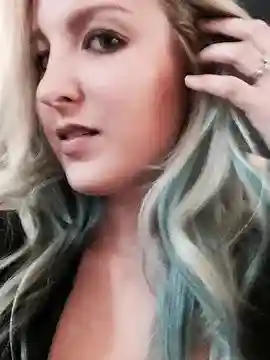The first suicide was the hardest, but by the third, I began to realize that if I was to be a writer, I had to learn to let people go.
This is what belonging to the literary community is about. We all reach out, desperate to connect with other writers—those who understand us—but there is always that nagging sensation in the back of our minds. How long will this new friend be around before he or she too is taken by the darkness of mental trauma? It’s a downward spiral that we can sometimes anticipate through reading others’ works; and yet, so many cases go unnoticed until it’s too late.
It’s those cases that make me ask myself if I am next.
Even in the face of this, I rebel against the concept of mental health. I spend countless hours worrying that a healthy version of me just won’t be capable of the same inspiration. I know I’m not alone in this fear.
So what is the actual reality linking writers to mental illness? According to an article released by The Atlantic, there’s a pretty big one: statistical evidence supports the fact that those in our profession are more prone to “schizophrenia, depression, bipolar disorder, anxiety syndrome, and substance abuse problems.” Additionally, writers are twice as likely to commit suicide when compared to the rest of the population.
In a line of work where creativity must flourish, it is sometimes easier for me to blame my lack of inspiration on outside forces. This is partly why it took me such a long time to jump on the treatment bandwagon for my PTSD and anxiety disorder. I was concerned the medication I would be given would dull my senses and take away from me everything that motivates me as a writer—and also, on some level, I felt that suffering is what writers should be doing. After all, there are so many literary greats whose best-known pieces are (supposedly) a direct result of their mental illnesses.
That last thought is what spurred me to write this column. The idea that I needed my pain to be a successful writer made me ask a question of myself: Is treatment of a mental illness the culprit of a creative downward spiral, or is that really just the stigma the literary community attaches to it?
An article by The New York Times captures such an idea perfectly in a quote from Diane Middlebrook, biographer: “Both Sylvia Plath and [Anne] Sexton shared the notion that a great artist’s life must end in death. You stop before you write more bad stuff. Sexton applauded Hemingway’s suicide. She said, ‘Good for him.’”
This philosophical debate could go on for centuries without any true answer, just as the quandary of whether the chicken or the egg came first. Yet still, there are those that insist medication dulls their senses and turns their writing to shit. I feel as wordsmiths, we’ve all either been the person to say this, or we know at least one acquaintance who has.
According to Everyday Health, it’s the other way around. Depression can actually have a numbing effect, where those afflicted insist they feel “dead inside.” But what of those parties that actually do seek treatment, and still feel that way? One of the experts interviewed for the article thinks he has the answer:
There is, in fact, some clinical evidence that a number of antidepressants that boost the brain chemical serotonin (sometimes referred to as “SSRIs”) may leave some individuals feeling somewhat “flat” emotionally. They may also complain that their sexual energy or drive is reduced, or that their thinking seems a little “fuzzy” or slowed down. These are probably side effects of too much serotonin — perhaps overshooting what would be optimal in the brain. The sort of emotional “flattening” may occur, in my experience, in perhaps 10 to 20 percent of patients who take these medications.
While I so often perceive my creativity to be borne out of suffering, when I take a moment to reflect on my personal experience with medication and writing, I find that concept skewed. During the times I wrote what I felt was my best work, I was medicated, and the worst came when I was at rock bottom—so caught up in my pain that I was numb to the experiences of the world.
I would love to see the difference between a literary community that suffers in silence versus one that emphasizes the importance of mental health. What would that look like? Would our library shelves become dusty voids where words go to die, or would the world see a revolution of inspired art that changes society for the better? In answer to this, Everyday Health quotes Peter J. Kramer, author of Against Depression:
What sort of art would be meaningful or moving in a society free of depression? Boldness and humor—broad or sly—might gain in status. Or not. A society that could guarantee the resilience of mind and brain might favor operatic art and literature. Freedom from depression would make the world safe for high neurotics, virtuosi of empathy, emotional bungee-jumpers. It would make the world safe for van Gogh.
So now I must ask the loyal masses: what is your experience with medicated writing, and what do you think would happen if the literary community began to embrace health versus suffering?

About the author
Raine lives in Cleveland, Ohio and works as a freelance writer and graphic artist. From an early age she has harbored a love of reading and writing, and is lucky enough to incorporate both into her daily work routine. Raine is a lover of all things fantasy and horror related, has a soft spot in her heart for middle grade and young adult fiction, and spends most of her free time running, wakesurfing, or wrangling in her husband and three cats while they perpetrate a massive amount of mischief around the house.








